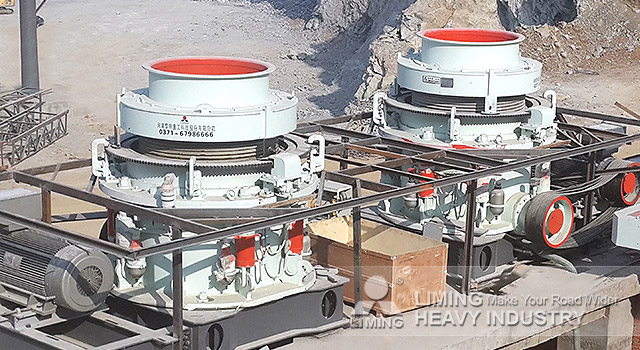The cone crusher is a vital equipment in the mining and aggregate industries, responsible for reducing large rocks and ores into smaller particles for further processing. However, traditional cone crushers often consume excessive energy, leading to high operational costs and environmental impacts. In recent years, the demand for more sustainable and energy-efficient crushing solutions has risen significantly. In response to this challenge, manufacturers have developed low energy consumption cone crushers that prioritize energy efficiency without compromising on performance. This article explores the key features and benefits of these innovative machines, highlighting their contribution to sustainable crushing operations.

Understanding the Energy Consumption Challenge
Traditional cone crushers operate by compressing materials between two crushing surfaces, requiring substantial energy input to break rocks and ores. As a result, these machines contribute to high energy consumption, leading to increased operating costs and carbon emissions. Moreover, the excessive energy usage puts a strain on power grids and exhausts natural resources, making it imperative to find eco-friendly alternatives.
The Need for Low Energy Consumption Cone Crushers
Environmentally Friendly Operations: One of the primary reasons for developing low energy consumption cone crushers is to minimize their environmental impact. By reducing energy usage, these crushers contribute to lower carbon emissions and help combat climate change, aligning with global sustainability goals.
Cost Savings: Energy-efficient cone crushers provide significant cost savings for crushing operators. With reduced energy consumption, businesses can cut down on electricity expenses, enhance their financial viability, and increase competitiveness in the market.
Key Features of Low Energy Consumption Cone Crushers
Advanced Crushing Technology: These crushers incorporate cutting-edge technologies that optimize the crushing process, ensuring efficient particle reduction with minimal energy input. Innovations may include computer-controlled systems, variable speed drives, and automated controls, all working together to improve energy efficiency.
High-Efficiency Motors: Low energy consumption cone crushers often come equipped with high-efficiency electric motors that convert electrical energy into mechanical power more effectively. This results in less energy loss during operation and overall improved efficiency.
Hydraulic Systems: Many modern cone crushers utilize hydraulic systems to adjust the crusher settings and maintain a consistent particle size. These hydraulic systems are designed to reduce energy waste, as they only use power when necessary, optimizing the crushing process.
Material Optimization: Manufacturers are exploring new materials for constructing cone crushers that exhibit higher strength and durability while reducing the overall weight. A lighter machine requires less energy to operate and transport, further contributing to energy efficiency.
Benefits of Low Energy Consumption Cone Crushers
Energy Savings: The primary benefit of these crushers is their reduced energy consumption. Crushing operations can achieve significant energy savings, leading to lower operating costs and a smaller carbon footprint.
Enhanced Productivity: Contrary to the misconception that energy-efficient machines compromise on performance, low energy consumption cone crushers maintain high levels of productivity and throughput, ensuring efficient material processing.
